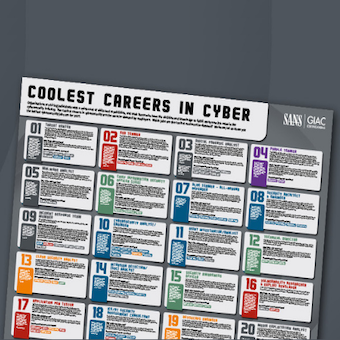Tags:
Editors Note: Today's post is from Jim Bird. Jim is the co-founder and CTO of a major U.S.-based institutional trading service, where he is responsible for managing the company's technology organization and information security program.
Automated configuration management tools like Ansible, Chef and Puppet are changing the way that organizations provision and manage their IT infrastructure. These tools allow engineers to programmatically define how systems are set up, and automatically install and configure software packages. System provisioning and configuration becomes testable, auditable, efficient, scalable and consistent, from tens to hundreds or thousands of hosts.
These tools also change the way that system hardening is done. Instead of following a checklist or a guidebook like one of the CIS Benchmarks, and manually applying or scripting changes, you can automatically enforce hardening policies or audit system configurations against recognized best practices, using pre-defined hardening rules programmed into code.
An excellent resource for automated hardening is a set of open source templates originally developed at Deutsche Telekom, under the project name "Hardening.io". The authors have recently had to rename this hardening framework to Dev-Sec.io.
It includes Chef recipes and Puppet manifests for hardening base Linux, as well as for SSH, MySQL and PostgreSQL, Apache and Nginx. Ansible support at this time is limited to playbooks for base Linux and SSH. Dev-Sec.io works on Ubuntu, Debian, RHEL, CenOS and Oracle Linux distros.
For container security, the project team just added an InSpec profile for Chef Compliance against the CIS Docker 1.11.0 benchmark.
Dev-Sec.io is comprehensive and at the same time accessible. And it's open, actively maintained, and free. You can review the rules, adopt them wholesale, or cherry pick or customize them if needed. It's definitely worth your time to check it out on GitHub: https://github.com/dev-sec.
To learn more about Dev, Ops, and Security, check out the new SANS Application Security course Secure DevOps: A Practical Introduction co-authored by Jim Bird (@jimrbird) and Ben Allen (@mr_secure).
This post was originally posted by Jim Bird at http://swreflections.blogspot.com
Jim Bird, SANS analyst and lead author of the SANS Application Security Survey series, is an active contributor to the Open Web Application Security Project (OWASP) and a popular blogger on agile development, DevOps and software security at his blog, "Building Real Software." He is the co-founder and CTO of a major U.S.-based institutional trading service, where he is responsible for managing the company's technology organization and information security program. Jim is an experienced software development professional and IT manager, having worked with high-integrity and high-reliability systems at stock exchanges and banks in more than 30 countries. He holds PMP, PMI-ACP, CSM, SCPM and ITIL certifications.





